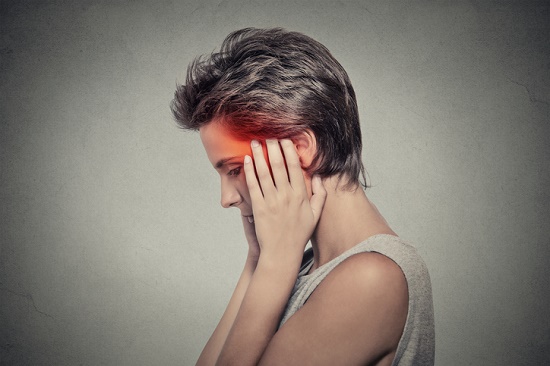
While it’s true that there is at this time no scientifically-confirmed way to cure tinnitus, researchers are hard at work to uncover one. In the meantime, several tinnitus therapy options exist that can provide considerable relief.
Think of it in this way. When you have a headache, you take Tylenol regardless of the fact that it doesn’t “cure” your headache. Pain relievers only make the pain diminish into the background so that it doesn’t impact your day. In the same way, tinnitus therapy can help lessen the degree of symptoms so that your tinnitus has minor affect on your daily schedule.
Given that every person reacts to tinnitus in a different way, there’s no one-size-fits-all treatment. You’ll have to work with your provider to discover the approach that is best suited for you.
Here are many of those options.
Tinnitus Treatment Solutions
If you suffer from tinnitus, you’ll want to talk over the following treatment options with your hearing care or healthcare provider.
Treatment of the underlying condition
Whereas the majority of instances of tinnitus are not curable—and are a consequence of hearing loss or other non-reversible injury—certain cases are the result of an underlying physical ailment. You’ll want to rule these out prior to seeking other treatment modalities.
Possible physical causes of tinnitus include jaw joint issues (temporomandibular joint, or TMJ dysfunction), excessive earwax or any other obstructions in the ear canal, head and neck injuries, and reactions to select medications.
General Wellness
The degree of tinnitus symptoms can vary depending on all-around health. Taking actions to strengthen general fitness is, therefore, one thing tinnitus patients can get started on right away to lessen the level of intensity of symptoms.
Every person is different, and what works well for someone else might not work for you. The idea is to try out a range of activities to find out what works best.
Strategies that have revealed promise include instituting a healthy diet, achieving plenty of physical exercise, meditating, and participating in activities like bicycling, which can cover up the sounds of tinnitus.
Hearing Aids
Tinnitus is often connected to hearing loss and hearing injury. In response to decreased stimulation from external sound, the brain undergoes maladaptive changes that lead to the perception of tinnitus.
By strengthening the magnitude of environmental sound, hearing aids can help mask the tinnitus, making the sounds of tinnitus less conspicuous. Hearing aids in addition supply increased sound stimulation to the brain, which is considered to be neurologically favorable.
Sound Therapies
Sound therapy is essentially the delivery of sound in the form of white noise, pink noise, or nature sounds to lower the perceived burden or severity of tinnitus.
Sound therapy works by masking the tinnitus and additionally by training the brain to reclassify the sounds of tinnitus as unimportant. This twofold effect can decrease the short and long-term degree of tinnitus.
Sound therapy can be supplied through special tabletop gadgets, but also through portable multimedia devices and even through hearing aids. Medical-quality sound therapy makes use of tailored sounds that match the pitch of the individual’s tinnitus for the best outcomes.
Behavioral Therapies
Keep in mind that tinnitus is the sense of sound in the brain when no external sound is present. The ailment is, therefore, highly subjective, and each person reacts a unique way.
In fact, whether or not the person perceives tinnitus as debilitating or minor is predominantly due to emotional reactions and not to the intensity or pitch of the tinnitus. That’s why cognitive/behavioral solutions to tinnitus therapy have been shown to be exceptionally effective.
A number of therapies are available, including Mindfulness-Based-Stress-Reduction (MBSR) and Tinnitus-Retraining-Therapy (TRT), which unites cognitive-behavioral-therapy with sound therapy.
Drug Therapy
Even though there are no current FDA-approved medications for tinnitus, antianxiety and antidepressant medications are often utilized to manage the behavioral side effects to tinnitus. These medications do not appear to influence tinnitus itself, but may supply much-needed relief if thought necessary by your doctor.
Experimental Therapies
The search for a tinnitus cure is ongoing. A number of experimental therapies are in development or testing and new techniques become available each year. If your tinnitus is severe, and you’ve achieved very little benefit from existing therapies, you may be a candidate for one of these innovative treatment options.
Visit the Experimental Therapies webpage at the American Tinnitus Association website for more information.
Find Relief For Your Tinnitus
Tinnitus is being aggressively studied, with new discoveries and potential treatment methods announced every year. Even today, there are a variety of encouraging treatments that, while not offering a cure, can provide considerable relief. You owe it to yourself to take a look at these options, stay positive and persistent in your tinnitus care, and work together with your provider to refine your treatment plan for the greatest results.

